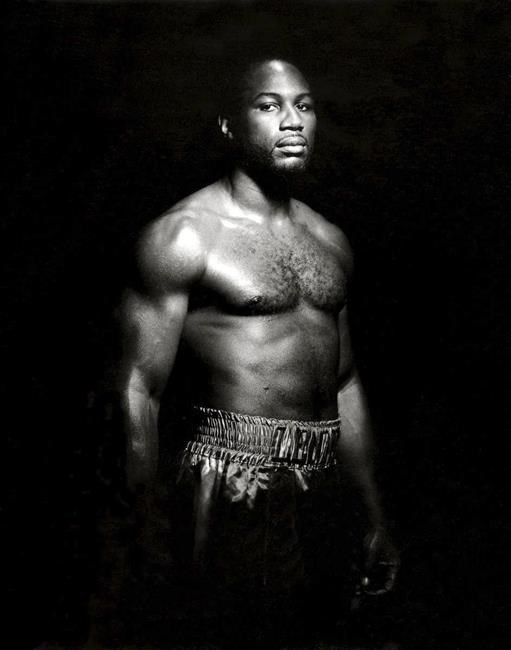The physical gifts that helped boxer Lennox Lewis reach his sport's greatest heights are obvious when looking at his chiselled frame. It was the mental strength that left him feeling particularly proud of the accomplishments showcased in his career-spanning documentary, "Lennox Lewis: The Untold Story."
"It's not the (usual) story," Lewis said. "It was more that this was a kid who focused on his ability and focused on what he needed to do. He did it in a humble but good way."
Set to premiere Monday on Crave in Canada, the 96-minute documentary examines Lewis's rough early years in England, his move to Kitchener, Ont., his progression through the amateur ranks and eventual reign at the top of the heavyweight division.
"When my different friends look at my documentary, they're so amazed at the mental and physical aspect, but (also) just me as a person," Lewis said. "This is who I am."
Lewis won Olympic boxing gold for Canada at the 1988 Seoul Games and became WBC champion in 1992. He later unified the heavyweight titles and retired as a champion in 2004.
Such lofty heights came from humble beginnings.
Lewis was raised by his mother, a nurse who had moved to east London from Jamaica. Lewis's father was not involved in his life.
When Lewis was seven, his mother found a better-paying job in Ontario and he stayed in England with a caregiver. The setup didn't work out.
Lewis ended up in boarding schools, often getting kicked out for fighting. His mother eventually sent for him and he spent his formative years with her in Kitchener.
He played a variety of sports but fell in love with boxing after trying it at a local police gym.
"I started sparring and liking it," Lewis told The Canadian Press in a recent interview from Toronto. "It was a fun game to me. Almost like a game of tag.
"I was enjoying learning a new craft and getting better."
Boxing coach Arnie Boehm helped guide him in those early years. Before long, Lewis was competing in area tournaments.
One of the pearls of the documentary footage is a junior bout between Lewis and a 15-year-old Mike Tyson. It would serve as a preview of a much bigger fight between the two down the road.
Lewis represented Canada at the 1984 Los Angeles Games, falling to Tyrell Biggs in the super heavyweight quarterfinals. Rather than turn pro, he continued at the amateur level and was rewarded four years later when he beat Riddick Bowe for Olympic gold in Seoul.
"I wanted to hone my skills," Lewis said of that quadrennial. "Absolutely."
Lewis returned to his native England to fight as a professional heavyweight. Boasting an 84-inch reach, the six-foot-five 231-pounder knocked out Al Malcolm at London's Royal Albert Hall for his first pro win.
With a potent jab, jaw-rattling uppercut and elite power in both fists, Lewis plowed through the heavyweight ranks with 24 more victories in a row, including wins over Biggs, Canada's Razor Ruddock, Frank Bruno and Tony Tucker.
A setback came in 1994 when Lewis suffered his first pro defeat. Oliver McCall stunned him at Wembley Arena, a loss that Lewis later avenged.
"Everything happens for a reason," Lewis said. "I think the McCall fight helped me because it showed me not to put so much into every punch. You can't knock out everybody.
"Everybody has a math problem to solve and you've got to solve that problem before anything. You've got to realize the route that you've got to take and make sure it's the right route."
The documentary uses a chronological approach and includes classic HBO footage. It showcases Lewis's challenges, successes and occasional failures.
From trainer changes to unique promoters to the odd game of chess, the viewer gets an interesting backstage pass.
All the big moments are featured: tension with Bowe and the WBC belt fiasco, two-fight battles with both Evander Holyfield and Hasim Rahman, and the much-hyped 2002 showdown with Tyson.
Before Lewis was done, he beat every top fighter of his era. He defeated Vitali Klitschko in 2003 and retired early the next year with a record of 41-2-1.
"This is really making a plan and sticking by it," said Lewis, now 55. "Realizing the aspect of what it takes to achieve it and then putting your head down and going out there and doing it."
Narrated by Dr. Dre and directed by Rick Lazes and Seth Koch, "Lennox Lewis: The Untold Story" is also available on Apple, Google Play and Video on Demand in North America.
This report by The Canadian Press was first published Jan. 29, 2021.
Follow @GregoryStrongCP on Twitter.
Gregory Strong, The Canadian Press




